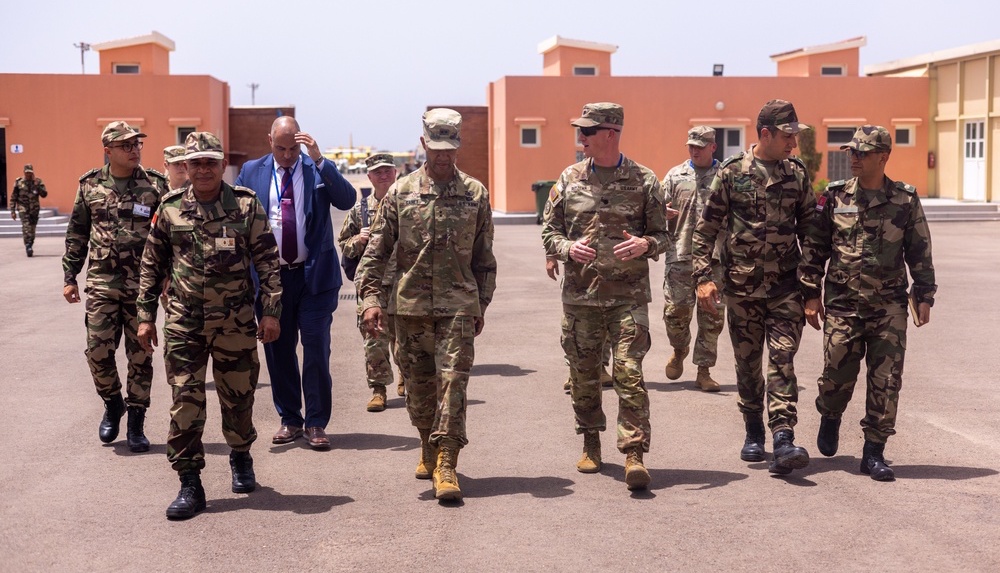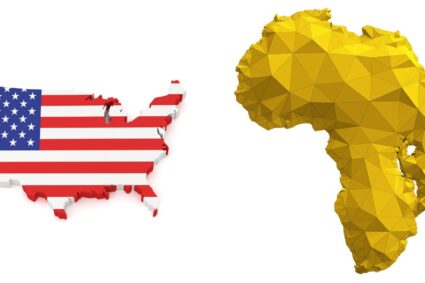
The African continent, home to vast potential and vibrant nations, faces a multitude of security challenges—from terrorism to maritime threats, from peacekeeping missions to regional stability concerns. Amidst this landscape, one alliance stands as a testament to cooperation, resilience, and mutual trust: the U.S.-Morocco partnership. It is a relationship that goes beyond numbers and programs; it is a story of shared goals and lasting impact. The significance of this collaboration comes into sharper focus when you consider the scale of investment and commitment involved.
Since 2012, the United States has provided $135 million in Foreign Military Financing (FMF) to Morocco. These funds have been instrumental in maintaining U.S.-origin defense equipment and enhancing Morocco’s maritime surveillance capabilities—a crucial step in combating illegal immigration, smuggling, drug trafficking, and illicit fishing. What’s more, the financial support has enabled Morocco to modernize its aerial surveillance systems and procure transport and logistics equipment, ensuring that its military remains agile and prepared to respond to emerging threats across the continent.
Beyond equipment and infrastructure, the partnership has delved deeply into the professionalization of Morocco’s military. Through the International Military Education and Training (IMET) program, the U.S. has invested $32 million since 2006 to send Moroccan military personnel to advanced educational programs at U.S. service schools. These courses don’t just enhance technical skills—they build relationships, foster interoperability with U.S. forces, and cultivate a network of leaders poised to drive Africa’s security priorities forward.
Morocco’s commitment to peacekeeping further underscores its role as a stabilizing force in the region. With 1,718 troops deployed across missions in the Central African Republic, Sudan, and South Sudan, Morocco exemplifies leadership in advancing peace in Africa . Its pre-deployment training center in Tifnit sets a high standard for modern peacekeeping readiness, offering specialized training in areas such as civilian protection, mental health care, combating disinformation, and environmental management.But Morocco’s contributions don’t stop at peacekeeping. The nation has established itself as a key player in counterterrorism efforts. Since 2005, Morocco has been an integral member of the Trans-Sahara Counterterrorism Partnership, targeting violent extremism in the volatile Sahara-Sahel region. As co-chair of the anti-ISIS Global Coalition’s Africa Focus Group, Morocco collaborates with the U.S. to tackle some of the continent’s most pressing security concerns.
What brings this partnership to life is the tangible impact of initiatives like AFRICAN LION, Africa’s largest military training exercise. Hosted annually by Morocco since 2008, AFRICAN LION brings together troops from over twenty nations and NATO, showcasing Morocco’s capacity to lead and its enduring collaboration with the United States. A recent milestone in their partnership—Morocco’s acquisition of six AH-64E Apache helicopters—signals a leap in its aerial defense capabilities. This landmark development reflects decades of trust and shared vision, positioning Morocco as a reference point for defense and stability in Africa.The story of U.S.-Morocco cooperation is not just one of military might; it is a narrative rooted in shared values and mutual respect.
For nearly 250 years, these two nations have forged a bond that transcends borders. Morocco, as Africa’s largest buyer of U.S. arms, demonstrates a forward-leaning approach to addressing crises and securing regional stability. As Aimee Cutrona, Chargé d’Affaires of the U.S. Embassy in Rabat, aptly noted, this partnership continues to grow, advancing peace and prosperity far beyond its immediate scope.And as African Lion 2025 looms on the horizon, the alliance between Morocco and the United States remains a shining example of how cooperative strategies can pave the way for sustainable stability. This partnership is more than a success story—it is a testament to what is possible when nations come together, guided by mutual goals and an unwavering commitment to progress.This is not just about defense; it is about shaping a future where security fuels growth, collaboration fosters peace, and partnerships inspire hope.
[IMAGE CREDIT: US Army photo by Capt Michael Mastrangelo Photo Credit Capt Michael Mastrangelo]


